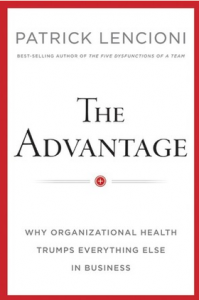Should UBF Adjust/Modify The Way Joseph Is Taught?
 A verse every Christian experiences. Christians love the story of Joseph in Genesis. In the big picture, it proclaims the marvelous and majestic sovereignty of God in the mysterious salvation of his people. One of my favorite verses is Gen 50:20 which reveals the goodness of God amidst the evilness of man: “You intended to harm me, but God intended it for good to accomplish what is now being done, the saving of many lives.” For sure every Christian experiences this verse in the particular, prickly and perhaps painful details of their own life. Continue reading →
A verse every Christian experiences. Christians love the story of Joseph in Genesis. In the big picture, it proclaims the marvelous and majestic sovereignty of God in the mysterious salvation of his people. One of my favorite verses is Gen 50:20 which reveals the goodness of God amidst the evilness of man: “You intended to harm me, but God intended it for good to accomplish what is now being done, the saving of many lives.” For sure every Christian experiences this verse in the particular, prickly and perhaps painful details of their own life. Continue reading →
One Reason People Leave UBF
 In a recent comment, Joshua sums up his (decade plus) experience in UBF here. He says that his wife and he “were told specifically how we ought to obey God’s commands, with very little opportunity to exercise our personal freedom as individual Christians. The result is that our lives became very much under the authority and control of our pastor in areas where we should have been given freedom to follow our conscience before God.”
In a recent comment, Joshua sums up his (decade plus) experience in UBF here. He says that his wife and he “were told specifically how we ought to obey God’s commands, with very little opportunity to exercise our personal freedom as individual Christians. The result is that our lives became very much under the authority and control of our pastor in areas where we should have been given freedom to follow our conscience before God.”
Why do people leave UBF, some after many decades? As I have listened to many people over the years as to why they leave UBF, I have been trying to articulate a common thread and reason as to why they leave, often after becoming a Christian in UBF, and some even after 10 to 30 years of being in UBF. Continue reading →
How Should UBF Respond to Criticism?
 How has UBF handled criticism? Perhaps not very well? Do we embrace and listen to what our critics say?
How has UBF handled criticism? Perhaps not very well? Do we embrace and listen to what our critics say?
My friend Brian Karcher is a critic of UBF (where he spent 24 years during the prime of his life). On Christmas day he posted this on Facebook: “And finally, to all those who de-friended me, told me I was listening to Satan’s voice, told me I was going to hell, played mind games with me by telling me no one wants to hear my thoughts, threatened to sue me, talked about me like I was possessed by an evil spirit or told me to shut up and go away– Merry Christmas! Here’s to an even more vocal 2013.”
Continue reading →
What Can UBF Do?
 Comments heard are that UBFriends states ad nauseum all the wrongs of UBF without stating what can be done. Perhaps so. But I believe that some good and some progress, however small, has happened, perhaps for the first time in 50 years. Some say that all prior attempts at reform since 1976 has not led to much, if any, significant change in UBF. Authoritarian practices, abuses, humiliation, disgruntlement, anger, “going out to pioneer,” and mass exodus of UBF people (among both missionaries and natives) have continued to happen in UBF chapters through out the world, often unchecked and unaddressed.
Comments heard are that UBFriends states ad nauseum all the wrongs of UBF without stating what can be done. Perhaps so. But I believe that some good and some progress, however small, has happened, perhaps for the first time in 50 years. Some say that all prior attempts at reform since 1976 has not led to much, if any, significant change in UBF. Authoritarian practices, abuses, humiliation, disgruntlement, anger, “going out to pioneer,” and mass exodus of UBF people (among both missionaries and natives) have continued to happen in UBF chapters through out the world, often unchecked and unaddressed.
What then can be done? (In related posts, I proposed nine practical suggestions for conflict resolution in a series on why we have divisions in the church.)
Continue reading →
Organizational Health and the Church
“The single, greatest advantage any company can achieve is organizational health. Yet it is ignored by most leaders even though it is simple, free, and available to anyone who wants it.”
 That’s how management consultant Patrick Lencioni begins the first chapter of The Advantage. I learned of this book through a group of pastors in my town who meet regularly to pray and create opportunities for local churches to work together. These pastors recently read The Advantage and discussed it at a retreat, along with another book that has become a favorite of mine, Emotionally Healthy Spirituality by Peter Scazzero. These two books complement each other nicely. One deals with the health of the individual, the other with the health of the group. The Advantage is not explicitly Christian – Lencioni doesn’t quote passages from the Bible – but many Christian leaders have found it helpful, and for the last two years Lencioni has been a featured speaker at Willow Creek’s Leadership Summit.
That’s how management consultant Patrick Lencioni begins the first chapter of The Advantage. I learned of this book through a group of pastors in my town who meet regularly to pray and create opportunities for local churches to work together. These pastors recently read The Advantage and discussed it at a retreat, along with another book that has become a favorite of mine, Emotionally Healthy Spirituality by Peter Scazzero. These two books complement each other nicely. One deals with the health of the individual, the other with the health of the group. The Advantage is not explicitly Christian – Lencioni doesn’t quote passages from the Bible – but many Christian leaders have found it helpful, and for the last two years Lencioni has been a featured speaker at Willow Creek’s Leadership Summit.
Keep Spiritual Order
My thesis is that spiritual “order” is equality as in the Trinity, not hierarchy. Where hierarchy prevails, it butchers the Trinity, and makes Christianity ugly.
Keep spiritual order. Over the last three decades in UBF, I have often heard and used the phrase, “Keep spiritual order.” I explained the order as “God, man and the world.” It correctly teaches that God, who is the Creator, is the Lord of creation. Thus, in Christ and through the gospel, man should keep this spiritual order by submitting to and obeying God from his heart.
Guilt tripping. However, my implicit practical meaning is that my Bible student should listen to what I (and other UBF leaders) tell them, because I am their shepherd and Bible teacher, who is “above” them. This implicit meaning and communication is what I believe has led to scores of misapplication, guilt tripping, control, manipulation, wounding, and misunderstanding.
Continue reading →
How You Glorify Yourself
 This could just as easily be titled, “How I glorify myself.” Why do we do this? It is part and parcel of our fallen humanity. It really does not matter how long one has been a Christian, for we all invariably default to self. We fall short of the glory of God (Rom 3:23) by glorifying ourselves and drawing attention to ourselves. Even our very best righteous acts are like filthy rags (Isa 64:6), because we prefer to reflect our own flawed righteousness (cf. Phil 3:9), rather than God’s perfect righteousness through Christ (1 Cor 1:30). So, how do we glorify ourselves? (This is loosely based on Paul Tripp’s two posts: 5 Signs You Glorify Self and 5 More Signs You Glorify Self.)
This could just as easily be titled, “How I glorify myself.” Why do we do this? It is part and parcel of our fallen humanity. It really does not matter how long one has been a Christian, for we all invariably default to self. We fall short of the glory of God (Rom 3:23) by glorifying ourselves and drawing attention to ourselves. Even our very best righteous acts are like filthy rags (Isa 64:6), because we prefer to reflect our own flawed righteousness (cf. Phil 3:9), rather than God’s perfect righteousness through Christ (1 Cor 1:30). So, how do we glorify ourselves? (This is loosely based on Paul Tripp’s two posts: 5 Signs You Glorify Self and 5 More Signs You Glorify Self.)
Continue reading →
What is shepherding?
 At the heart of the UBF lifestyle is something called 1:1. This is pronounced “one-to-one” and it refers to the role of shepherding other people (specifically college students) on a one-to-one basis. Often the assumption is that we understand this shepherding, accept it as a command from God, and just do it. The tendency is to see Bible study as the solution for all life’s problems, even at the expense of seeking other types of help when needed.
At the heart of the UBF lifestyle is something called 1:1. This is pronounced “one-to-one” and it refers to the role of shepherding other people (specifically college students) on a one-to-one basis. Often the assumption is that we understand this shepherding, accept it as a command from God, and just do it. The tendency is to see Bible study as the solution for all life’s problems, even at the expense of seeking other types of help when needed.
But what is shepherding? I’d like to take some time to stop and think critically about this important subject.


Last 30 Comments